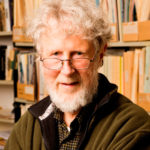You want to improve your teaching with psychology research?
We’ve got good news, and bad news.
And more good news.
Good News: we have lots and LOTS of research. We can talk about attention, or working memory, or the spacing effect, or motivation, or stress…the list is long. And super helpful.
So much practical advice!
Bad News: actually, the bad news is the same as the good news. We’ve got SO MUCH good research that it’s honestly hard to keep track of it all.
I mean, seriously. Should you start by looking at attention research? Or stress research?
Should we think about the motivational effects of student-teacher relationships, or the perils of working memory overload, or the benefits of desirable difficulty?
Which is most important?
Honestly, I think our next priority is not so much finding out new truths about learning, but organizing all the information we already have.
More Good News
If you agree that we really need someone to sort all these suggestions into a coherent system, you’ll be delighted to read this article by Stephen Chew (Twitter handle: @SChewPsych) and William Cerbin (@BillCerbin).
Other scholars — for instance, Barak Rosenshine — have put together a coherent system based on learning principles. Chew and Cerbin, instead, organize their system around cognitive challenges.
That is:
If students feel anxiety about a topic or discipline, that emotion will interfere with their learning.
If students have prior misconceptions, they will distort students’ understanding.
If classroom work or assignments go beyond working memory limits, students won’t learn effectively (or, at all).
When planning a course or a lesson or an assignment, teachers can think their way through these specific challenges. By contemplating each one, we can design our work to best facilitate learning.
Getting the Emphasis Right
If you’re thinking “this is such excellent news! It just can’t get any better!” — well — I’ve got some news: it gets better.
Chew and Cerbin write:
There is no single best teaching strategy for all students, topics, and situations. The proposed framework is not prescriptive … and can guide adaptation of teaching practice.
In other words, they’re not saying: here’s a list of things to do.
Instead, they are saying: here are several topics/problems to consider.
Teaching advice should not include “best practices.” (That’s a business concept.) It should include “best questions to ponder as we make decisions.” Chew and Cerbin make this point repeatedly.
Frequent readers know that I’ve been banging on for years with this mantra: “Don’t just do this thing; instead, think this way.”
We should think about our students’ working memory limitations. The strategies we use might differ for 1st graders and 8th graders.
We should think about the importance of transfer. A Montessori school and a KIPP school will (almost certainly) use differing strategies to reach that goal.
We should think about our students’ prior knowledge. The best way to measure that knowledge might be different for students with diagnosed learning differences.
Yes: we should consider these nine topics. But the ways we answer them must depend on our students, our schools, our curriculum, and ourselves.
For all these reasons, I recommend Chew and Cerbin’s article with great enthusiasm.
And, happily, you can meet Dr. Chew at our online conference in February! (In case you’re wondering: I was planning to write about this article before I knew he was joining the conference. A happy synchronicity.)




